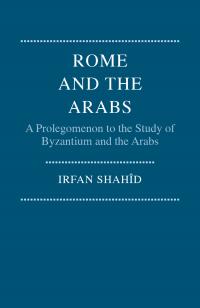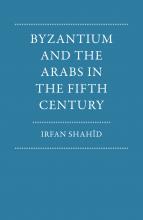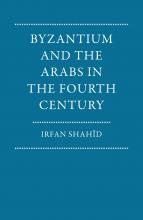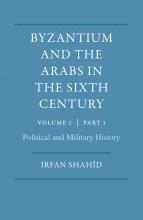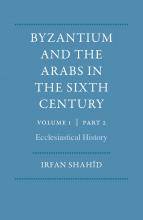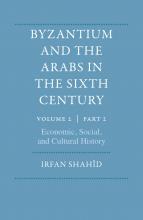Rome and the Arabs
Rome and the Arabs
By: Irfan Shahîd
In addition to political and military matters, Shahîd discusses the Arabs’ cultural contributions in Roman-controlled Oriens, including their role in the urbanization of the region and the progress of Christianity.
Title information
The Arabs played an important role in Roman-controlled Oriens in the four centuries or so that elapsed from the Settlement of Pompey in 64 BC to the reign of Diocletian, AD 284–305. In Rome and the Arabs Irfan Shahîd explores this extensive but poorly known role and traces the phases of the Arab-Roman relationship, especially in the climactic third century, which witnessed the rise of many powerful Roman Arabs such as the Empresses of the Severan Dynasty, Emperor Philip, and the two rulers of Palmyra, Odenathus and Zenobia. Philip the Arab, the author argues, was the first Christian Roman emperor and Abgar the Great (ca. AD 200) was the first Near Eastern ruler to adopt Christianity. In addition to political and military matters, the author also discusses Arab cultural contributions, pointing out the role of the Hellenized and Romanized Arabs in the urbanization of the region and in the progress of Christianity, particularly in Edessa under the Arab Abgarids.
Irfan Shahîd
Associate Fellow at Dumbarton Oaks and Fellow of the Medieval Academy of America, Irfan Shahîd was Emeritus Professor of Arabic Studies at Georgetown University, where from 1982 to 2008 he was Oman Professor of Arabic and Islamic Literature.
This set includes all seven volumes of Irfan Shahîd’s groundbreaking work on the political, military, religious, social, and cultural history of the Arabs and their relationship with the Eastern Roman Empire from 64 BC to the advent of Islam.

